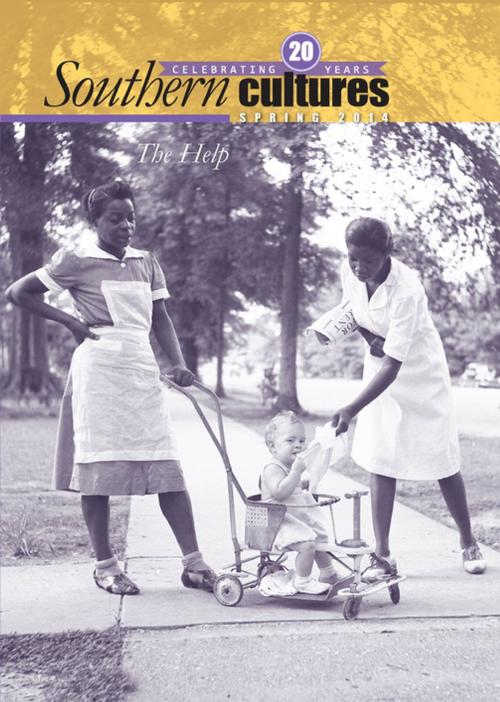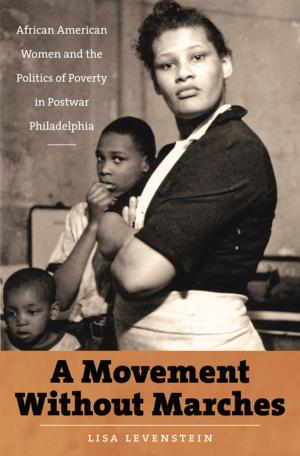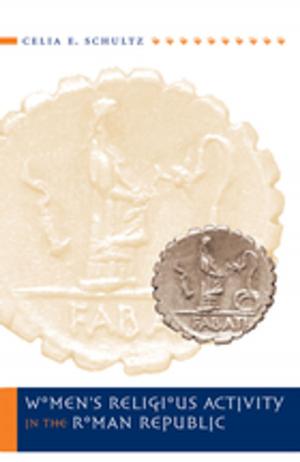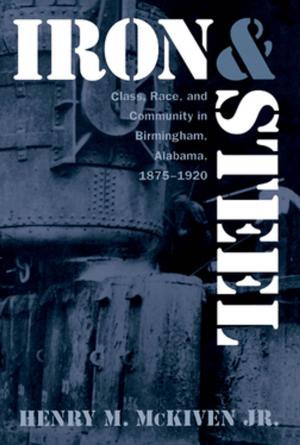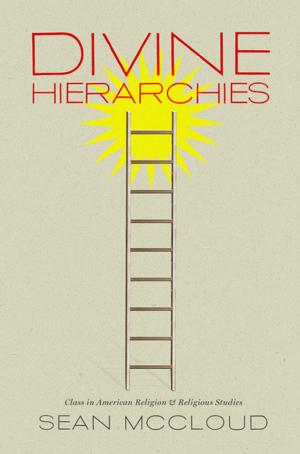Southern Cultures: The Help Special Issue
Volume 20: Number 1 – Spring 2014 Issue
Nonfiction, History, Americas, United States| Author: | ISBN: | 9781469615936 | |
| Publisher: | The University of North Carolina Press | Publication: | February 14, 2014 |
| Imprint: | The University of North Carolina Press | Language: | English |
| Author: | |
| ISBN: | 9781469615936 |
| Publisher: | The University of North Carolina Press |
| Publication: | February 14, 2014 |
| Imprint: | The University of North Carolina Press |
| Language: | English |
Southern Cultures: The Help Special Issue
Volume 20: Number 1 – Spring 2014
Table of Contents
Front Porch,
by Harry L. Watson
"Lauded for her endless gifts and selfless generosity, Mammy is summoned from the kitchen to refute the critics of southern race relations; cruelly circumscribed and taken for granted, she silently confirms them all."
The Divided Reception of The Help
by Suzanne W. Jones
The more one examines the reception of The Help, the less one is able to categorize the reception as divided between blacks and whites or academics and general readers or those who have worked as domestics and those who haven't.
Black Women's Memories and The Help
by Valerie Smith
"Cultural products—literary texts, television series, films, music, theatre, etc.—that look back on the Movement tell us at least as much about how contemporary culture views its own racial politics as they do about the past they purport to represent, often conveying the fantasy that the United States has triumphed over and transcended its racial past."
"A Stake in the Story": Kathryn Stockett's The Help, Ellen Douglas's Can't Quit You, Baby, and the Politics of Southern Storytelling
by Susan V. Donaldson
"Like The Help, Can't Quit You, Baby focuses on the layers of habit, antipathy, resentment, suspicion, attachment, and silence linking white employer and black employee, but in ways that are far more unsettling."
"We Ain't Doin' Civil Rights": The Life and Times of a Genre, as Told in The Help
by Allison Graham
"Perhaps because the modern Civil Rights Movement and television news came of age together, the younger medium was destined to become an iconographic feature of the civil rights genre."
Every Child Left Behind: Minny's Many Invisible Children in The Help
by Kimberly Wallace-Sanders
"The question arises: wouldn't the mammy characters be rendered more believable in their altruism if it extended beyond white children to all children?"
Kathryn Stockett's Postmodern First Novel
by Pearl McHaney
"Pleasure and anger are dependent on one another for heightened authenticity. Discussing The Help with delight and outrage seems just the right action."
Not Forgotten: Twenty-Five Years Out from Telling Memories
Conversations Between Mary Yelling and Susan Tucker
compiled and introduced by Susan Tucker
"I am glad she used what the women told us and made something different from it. She made people listen. I know it is fiction, and I know not everyone liked it, but she made people not forget. What more can you want?"
Mason-Dixon Lines
Prayer for My Children
poetry by Kate Daniels
About the Contributors
Southern Cultures is published quarterly (spring, summer, fall, winter) by the University of North Carolina Press. The journal is sponsored by the University of North Carolina at Chapel Hill's Center for the Study of the American South.
Southern Cultures: The Help Special Issue
Volume 20: Number 1 – Spring 2014
Table of Contents
Front Porch,
by Harry L. Watson
"Lauded for her endless gifts and selfless generosity, Mammy is summoned from the kitchen to refute the critics of southern race relations; cruelly circumscribed and taken for granted, she silently confirms them all."
The Divided Reception of The Help
by Suzanne W. Jones
The more one examines the reception of The Help, the less one is able to categorize the reception as divided between blacks and whites or academics and general readers or those who have worked as domestics and those who haven't.
Black Women's Memories and The Help
by Valerie Smith
"Cultural products—literary texts, television series, films, music, theatre, etc.—that look back on the Movement tell us at least as much about how contemporary culture views its own racial politics as they do about the past they purport to represent, often conveying the fantasy that the United States has triumphed over and transcended its racial past."
"A Stake in the Story": Kathryn Stockett's The Help, Ellen Douglas's Can't Quit You, Baby, and the Politics of Southern Storytelling
by Susan V. Donaldson
"Like The Help, Can't Quit You, Baby focuses on the layers of habit, antipathy, resentment, suspicion, attachment, and silence linking white employer and black employee, but in ways that are far more unsettling."
"We Ain't Doin' Civil Rights": The Life and Times of a Genre, as Told in The Help
by Allison Graham
"Perhaps because the modern Civil Rights Movement and television news came of age together, the younger medium was destined to become an iconographic feature of the civil rights genre."
Every Child Left Behind: Minny's Many Invisible Children in The Help
by Kimberly Wallace-Sanders
"The question arises: wouldn't the mammy characters be rendered more believable in their altruism if it extended beyond white children to all children?"
Kathryn Stockett's Postmodern First Novel
by Pearl McHaney
"Pleasure and anger are dependent on one another for heightened authenticity. Discussing The Help with delight and outrage seems just the right action."
Not Forgotten: Twenty-Five Years Out from Telling Memories
Conversations Between Mary Yelling and Susan Tucker
compiled and introduced by Susan Tucker
"I am glad she used what the women told us and made something different from it. She made people listen. I know it is fiction, and I know not everyone liked it, but she made people not forget. What more can you want?"
Mason-Dixon Lines
Prayer for My Children
poetry by Kate Daniels
About the Contributors
Southern Cultures is published quarterly (spring, summer, fall, winter) by the University of North Carolina Press. The journal is sponsored by the University of North Carolina at Chapel Hill's Center for the Study of the American South.
